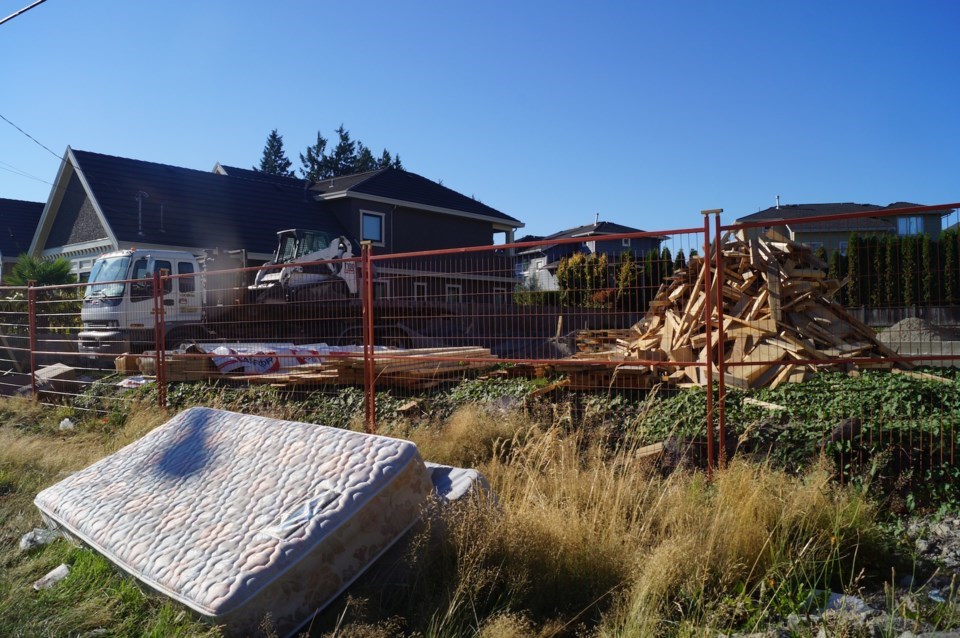Dead end roads, laneways and industrial and rural areas in Richmond have become illegal dumping grounds – costing the city’s taxpayers tens of thousands of dollars to clean up.
Last year alone, as a result of some people’s “blatant disregard for bylaws and the environment,” the city spent over $171,000 to clean up abandoned items, said City of Richmond spokesperson Clay Adams.
He added that, in 2020, there were 982 reported instances of illegal dumping in Richmond, up 21 per cent from 2019. The most-frequently dumped items are furniture, mattresses, drywall or hazardous material and construction material.
Richmond isn’t alone in seeing a rise in illegal dumping last year.
Collectively, municipalities across the region reported more than 47,000 incidents of illegal dumping, up eight per cent from 2019, according to Metro Vancouver. Cleaning up the abandoned items costs local governments around $5.8 million each year.
The city imposes a $1,000 fine for illegally dumping garbage, but Adams said that prosecution of illegal dumping can be a challenge as there needs to be evidence and witnesses.
A $200 reward is also offered to residents who contact the city to report illegal dumping – if that report leads to a bylaw conviction of the offenders.
However, the city was able to charge an offender with three $1,000 fines last year, after a resident was able to provide sufficient evidence. The resident received the $200 reward.
While illegal dumping remains an issue in Richmond, Adams said the city also saw more people disposing of their unwanted items properly last year.
Nearly 6,000 tonnes of materials were brought to the Recycling Depot in 2020 – an increase of nearly 29 per cent from 2019 – while 19,140 items were collected through the city’s large item curbside pickup program (an increase of 11 per cent from 2019).
“People were clearly using the pandemic as an opportunity to clean and remove – thankfully appropriately in the majority of cases – unwanted items from their homes and businesses,” Adams said.
Anyone who witnesses someone dumping waste illegally or in a suspicious manner is asked to contact the city and record details of the offenders if possible, said Adams.
“Bottom line is that we all have a responsibility to dispose of waste items appropriately, whether it be through regular garbage collection, responsible recycling, designated waste disposal, or even using circular economy principles (reuse and recirculate).”




